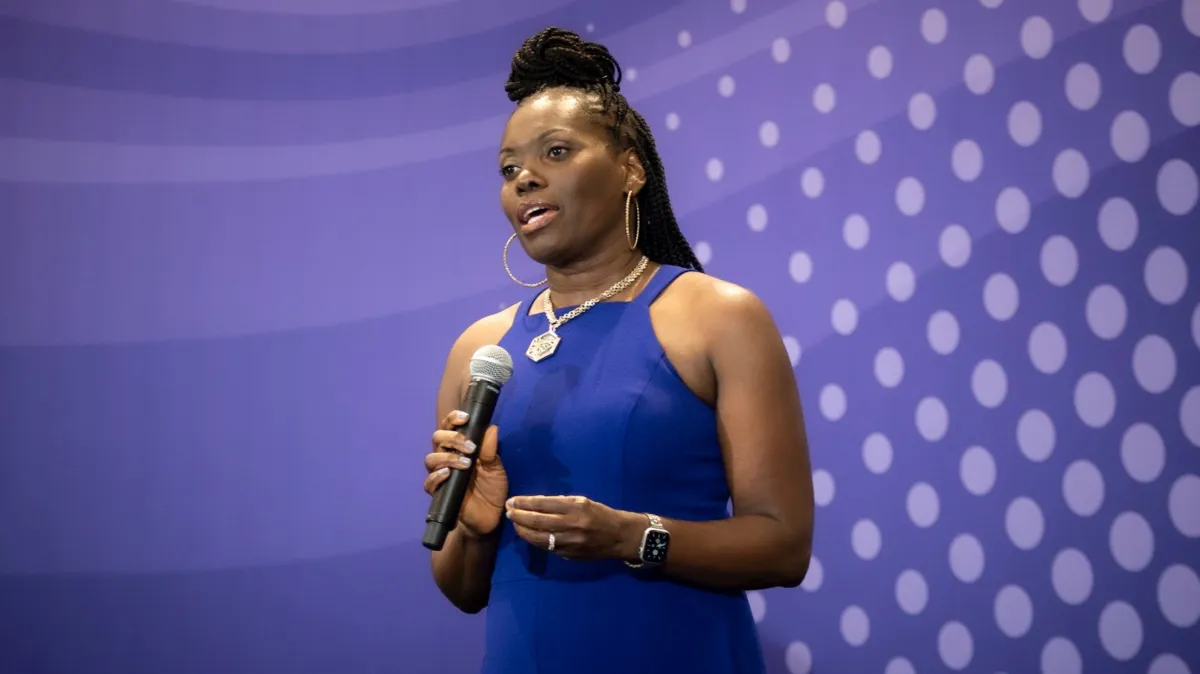Contact Us
Get in Touch
Have questions or need assistance? Contact us today to discuss your financial goals.
Subscribe to our newsletter to receive news, updates, and valuable tips.
Coping with Major Illness
Disability Insurance: Frequently Asked Questions
Should I purchase my own disability insurance policy?
Many of us have life insurance, however very few of us have long-term disability coverage. Yet according to statistics, workers are more likely to sustain a long-term disability (one lasting longer than 90 days) than die at an early age.
Long-term disability insurance is fairly expensive, and people tend to think that they will be protected by workers' compensation or other sources. However, Social Security, workers' compensation, and employer-offered long-term coverage are often inadequate.
How much disability insurance should I have?
A disability insurance company will usually not cover you for more than 60 percent of your income. Look for a policy that provides coverage for this level. When you shop for a disability policy, be ready to prove your income level. If you purchase the policy and pay the premiums yourself, the income received will not be taxable. Therefore, 60 percent should come close to replacing your after-tax income.
What does workers compensation insurance cover?
Worker's compensation covers injuries that happen on the job. Benefits vary widely from state to state but typically are equivalent to 66.67 percent of the average weekly wage for the previous 52 weeks. In addition, most states pay benefits for the employee's lifetime in cases of permanent total disability.
Tip: To get details on worker's comp benefits, contact your state Department of Labor.
In addition to the requirement that an injury is work-related, the payments you would receive under worker's comp may be inadequate.
How is disability defined?
The definition of disability in a policy is extremely important. It tells you under what circumstances you will qualify to receive benefits.
Own-occupation coverage pays benefits if you can't work in your chosen field--if you are an attorney or teacher, for example. Own-occupation policies are the most expensive type of disability coverage because they provide the broadest coverage. Generally, if you cannot perform the duties of your own occupation, you can take a job in a related field, make a decent income, and still collect the benefits.
Any-occupation coverage pays benefits if you can't work at any occupation for which your education level and training has prepared you. Therefore, if you can no longer perform the duties of a nuclear physicist, but you can teach physics at college level, you will not receive benefits.
Note: Many policies are own-occupation for a period of years, at which point they convert to any-occupation.
How does long-term care insurance work?
By 2020, 12 million older Americans will need long-term care. Most will be cared for at home; family and friends are the sole caregivers for 70 percent of the elderly. A study by the U.S. Department of Health and Human Services says that people who reach age 65 will likely have a 40 percent chance of entering a nursing home. About 10 percent of the people who enter a nursing home will stay there five years or more.
Your chances of needing long-term care vary with your age, health, family history and longevity, exercise habits, diet, smoking, and gender; however, women are often at higher risk simply because they live longer.
Long-term care insurance policies pay a set dollar amount per day for covered care during the benefit period stated in the policy.
Example: You choose a policy that pays $160 per day for five years. The maximum that policy will pay is $292,000 ($160 per day, times 365 days, times 5 years).
The older the individual covered, the higher the premium is. For instance, premiums for a set amount of coverage on a 70-year-old individual are about three times those that would apply to a 50-year-old.
Most long-term care policies are indemnity-type policies, meaning they will pay (up to the policy's limits) for actual charges by the care provider. Some long-term care policies, instead of being based on indemnity, pay daily benefit amounts to the insured rather than paying for actual charges. The latter type of policy offers insureds greater flexibility (e.g., allowing them to pay for home care) and less paperwork.
In a long-term care policy, what is the elimination period?
This period constitutes the number of days the insured must wait after becoming eligible for benefits before coverage actually begins.
The elimination period can range from zero to 90 days, or up to one year. The longer the elimination period, the lower the premium is.
How should I select a long-term care insurance provider?
If you decide that long-term care insurance (LTCI) is your best option, it is important to shop around for the right company. Some states have enacted important consumer protections in the LTCI area, while others have not. Do not assume the company is a safe bet just because it is licensed by the state insurance department to sell LTCI.
No matter how good a policy sounds, it is worth little if the company won't be there when it comes time to pay. Buy from a company with strong financial reserves. Unfortunately, there is no foolproof method for determining which companies are financially strong. However, it pays to look up a company's rating by A.M. Best or Standard and Poor's, both of which evaluate the financial health of insurance companies.
Tip: Purchase long-term care insurance from a company that has an A+ or A++ rating from Best or an A, AA, or AAA rating from Standard and Poor's. Most public libraries have these references.
When can I qualify for Medicaid insurance?
Eligibility rules vary from state to state, but beneficiaries are generally required to "spend down" their income and assets to qualify. New laws in many states make it possible for the spouses of Medicaid nursing home residents to keep more income and assets than previously allowed.
By law, nursing homes cannot discriminate against Medicaid patients, but in reality, many keep "waiting lists" for them while enrolling patients with more income and assets. Medicaid coverage for home care is very limited in most states.
Social Security Benefits: Frequently Asked
Who is entitled to Social Security disability benefits?
An individual who is determined to be "disabled" by the Social Security Administration receives an Award Letter, which is a notice of decision that explains how much the disability benefit will be and when payments start. It also tells you when you can expect your condition to be reviewed to see if there has been any improvement.
If family members are eligible, they will receive a separate notice and a booklet about things they need to know.
Under the Social Security disability insurance program (Title II of the Act), there are three basic categories of individuals who can qualify for benefits on the basis of disability:
A disabled insured worker under full retirement age.
An individual disabled since childhood (before age 22) who is a dependent of a parent entitled to Title II disability or retirement benefits or was a dependent of a deceased insured parent.
Disabled widow or widower, age 50-60 if the deceased spouse was insured under Social Security.
Been disabled or expected to be disabled for at least 12 months
Has filed an application for benefits, and
Completed a five-month waiting period; however, the 5-month waiting period does not apply to individuals filing as children of workers. Under SSI, disability payments may begin as early as the first full month after the individual applied or became eligible for SSI. In addition, if you become disabled a second time within five years after your previous disability benefits stopped, there is no waiting period before benefits start.
Under Title XVI or SSI, there are two basic categories under which a financially needy person can get payments based on disability:
An adult age 18 or over who is disabled.
Child (under age 18) who is disabled.
For all individuals applying for disability benefits under Title II and for adults applying under Title XVI, the definition of disability is the same. The law defines disability as the inability to engage in any substantial gainful activity (SGA) because of any medically determinable physical or mental impairment(s) which can be expected to result in death or which has lasted or can be expected to last for a continuous period of not less than 12 months.
Meeting this definition under Social Security is difficult. Insured means that you have accumulated sufficient credits in the Social Security system. Visit the Social Security Administration's Website to apply for an estimate.
When do Social Security disability benefits begin?
If you are getting disability benefits on your work record, or if you are a widow or widower getting benefits on a spouse's record, there is a five-month waiting period, and your payments will not begin until the sixth full month of disability. The 5-month waiting period does not apply to individuals filing as children of workers. Under SSI, disability payments may begin as early as the first full month after the individual applied or became eligible for SSI.
If the sixth month has passed, your first payment may include some back benefits. Your payment should arrive on the third day of every month. If the third falls on a Saturday, Sunday, or legal holiday, you will receive your payment on the last banking day before that day. The payment you receive is the benefit for the previous month. The payment you receive on July 3 (or dated July 3 if you get a paper check) is for June. Ninety-nine percent of recipients receive direct deposit; however, your benefit can be mailed or deposited directly into your bank account.
Are Social Security disability benefits taxable?
Some people who get Social Security must pay taxes on their benefits. The rules are the same regardless of whether Social Security benefits are received due to retirement or disability. You must pay taxes if you file a federal tax return as an "individual" and your combined income is more than $25,000. Combined income is defined as your adjusted gross income + Nontaxable interest + 1/2 of your Social Security benefits. If you file a joint return, you may have to pay taxes if you and your spouse have a combined income of more than $32,000. If you are married and file a separate return, you will probably pay taxes on your benefits. Social Security has no authority to withhold state or local taxes from your benefit. Many states and local authorities do not tax Social Security benefits. However, you should contact your state or local taxing authority for more information.
How long do Social Security disability payments continue?
Your disability benefits generally continue for as long as your impairment has not medically improved and you cannot work. They will not necessarily continue indefinitely, however.
Because of advances in medical science and rehabilitation techniques, an increasing number of people with disabilities recover from serious accidents and illnesses. Also, through determination and effort, many individuals overcome serious conditions and return to work in spite of them.
What happens to Social Security disability benefits when I reach retirement age?
If you are still getting disability benefits when you reach retirement age, your benefits will be automatically changed to retirement benefits, generally in the same amount. You will receive a new booklet explaining your rights and responsibilities as a retired person.
If you are a disabled widow or widower, your benefits will be changed to the regular widow or widower benefits (at the same rate) at 60. You will receive a new instruction booklet that explains the rights and responsibilities for people who get survivor benefits.
What happens if Social Security turns down my claim for disability benefits?
If you disagree with SSA's decision, you can appeal it. You have 60 days to file a written appeal (either by mail or in person) with any Social Security office. Generally, there are four levels to the appeals process. They are:
Reconsideration. Your claim is reviewed by someone who did not take part in the first decision.
Hearing before an Administrative Law Judge. You can appear before a judge to present your case.
Review by Appeals Council. If the Appeals Council decides your case should be reviewed, it will either decide your case or return it to the administrative law judge for further review.
Federal District Court. If the Appeals Council decides not to review your case or disagree with its decision, you may file a civil lawsuit in a Federal District Court and continue your appeal to the US Supreme Court if necessary.
If you disagree with the decision at one level, you have 60 days to appeal to the next level until you are satisfied with the decision or have completed the last level of appeal.
You have two special appeal rights when a decision is made that you are no longer disabled.
They are as follows:
Disability Hearing. As part of the reconsideration process, this hearing allows you to meet face-to-face with the person reconsidering your case to explain why you feel you are still disabled. You can submit new evidence or information and bring someone who knows about your disability. This special hearing does not replace your right to also have a formal hearing before an administrative law judge (the second appeal step) if your reconsideration is denied.
Continuation of Benefits. While appealing your case, you can have your disability benefits and Medicare coverage (if you have it) continue until an administrative law judge decides the outcome. However, you must request the continuation of your benefits during the first ten days of the 60 days mentioned earlier. If your appeal is unsuccessful, you may have to repay the benefits.
Will I receive Social Security when I retire?
Retirement benefit calculations are based on your average earnings during a lifetime of work under the Social Security system. For most current and future retirees, The Social Security Administration (SSA) averages your 35 highest years of earnings. Years in which you have low earnings or no earnings may be counted to bring the total years of earnings up to 35.
You can collect early retirement benefits at age 62, but keep in mind that for anyone born from 1943 to 1954, the full retirement age is 66, and it increases gradually until it reaches 67 for those born in 1960 and later. Then you can collect additional benefits for every year you delay your retirement until age 70. After you begin to collect Social Security benefits, you will continue to receive them for life.
How can I find out what Social Security will pay me when I retire?
You can create a my Social Security account with SSA and view your Social Security Statement online at any time.
Can I count on Social Security being around when I retire?
With retirement on the horizon for scores of baby boomers, Social Security will likely be in your future; however, the Social Security trust fund will be less and less able to pay benefit increases, which increase annually as the taxable wage base rises without some kind of reform.
Schedule your call today at
(866) 721-5356



Ready to Keep More of What You Earn?
Start With a Free Tax Savings Assessment
Discover how much you could be saving with proper tax strategy. Our complimentary assessment typically uncovers $15,000-$50,000 in missed deductions and savings opportunities.

Subscribe to our Mailing List
And that's just a peek at what we offer. Get more marketing tips straight to your inbox.
Contact Us
(866) 721-5356
100 South Bedford Road, Suite 340, Mt. Kisco, New York 10549
© 2024 Chase Eason & Associates, Inc.
100 South Bedford Road, Suite 340, Mt. Kisco, New York 10549






















